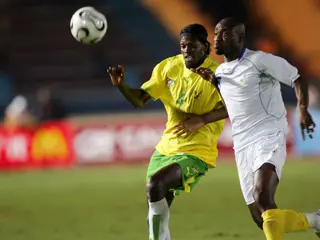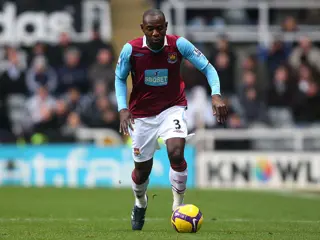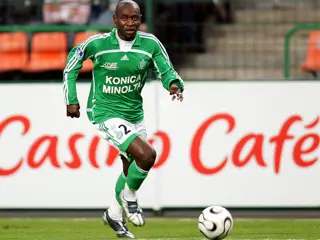News
Union president Herita Ilunga: "All parties in DR Congo must unite to save our football"
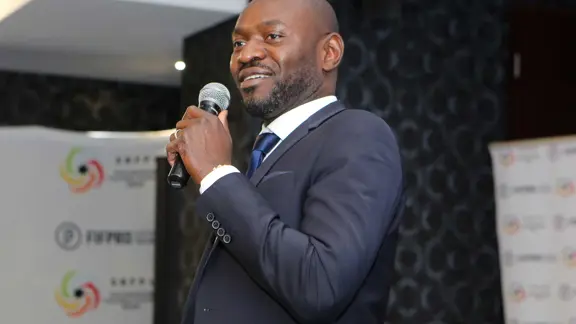
- Professional leagues in DR Congo have been at a standstill for four months
- Union President Herita Ilunga, a former defender with Saint-Etienne and West Ham, provides an overview of the situation
- "The union is in contact with the players as regularly as possible," says Ilunga
In the Democratic Republic of Congo, the professional leagues have been at a standstill for four months now. The situation is dramatic in more ways than one, particularly for players whose contracts are no longer honoured, while there is nothing to suggest that it can return to normal easily.
For Herita Ilunga, the president of the Union des Footballeurs du Congo (UFC) and former DR Congo captain, the time for a profound reform has come.
Herita, how do you reflect on the total stoppage of professional championships in DR Congo?
For many years now, the organisation of national championships in DR Congo has not been satisfactory, to put it mildly. Even if efforts have been made, since our elite clubs no longer play several competitions simultaneously it has become clear that the formula adopted in 2018, with one single championship organised by Linafoot (Ligue National de Football du Congo), is not economically viable.
DR Congo is huge [editor's note: the eleventh largest country in the world]. It is expensive to travel within the country in conditions that are consistent with practice of a professional sport. If the championships have come to a halt, it is because the majority of clubs can no longer afford the expenses incurred by travel. Some teams were even more frustrated because, after having made great financial efforts, they arrived at stadiums for the match to find out that another event was planned – so they had to turn back. It’s unbelievable, but true.
Is this the fallout from the recent health crisis?
In part, even though the state put its hand in its pocket to relaunch not only football but all Congolese sport after the pandemic. But this aid, which was once a lifesaver, did not stand up to the economic realities and the other priorities facing the state.
Without state money, is the Congolese football economy really that poor?
The presidents of the vast majority of our clubs cannot spend without counting the costs and they have little hope of a return. In our country, the champion receives 100,000 dollars, which does not even cover travel expenses. The lack of money is the heart of the problem, to try to get out of the lethargy in which our competitions are plunged. Some people have even asked that the funds allocated by FIFA for the development of national football be used to support the clubs and allow the competitions to start again. It was obvious that FIFA would reject this request, as it did, since this money was not intended to support our championships.
So how can the deadlock be broken?
First of all, dialogue must be resumed between the federation and the professional league on the one hand, and the association of clubs on the other. At the UFC, we are continuing to discuss with both sides, and everyone knows that we are ready and determined to sit down around the table because the future of football in DR Congo is at stake, as well as the future of a large number of players who are now in serious problems since almost all the clubs – already in great difficulty before the end of the competitions – can no longer honour their contracts and pay their salaries. The UFC is in contact with the players as regularly as possible, to listen to them, support them and help them. And to tell them the truth for the months to come...
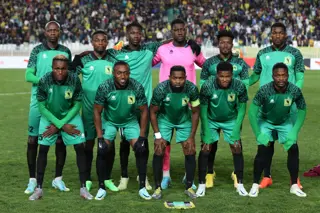
What does that mean?
That we must come to terms with the definitive end of the professional championships. Given the number of days left to play, it is impossible to finish the competitions within the limits imposed by FIFA on each country and, in any case, we would be opposed to this in order to preserve the health of the players. It would be too dangerous to subject them to the insane pace of matches imposed by the desire to resume and finish the championship at all costs. Reason must prevail and I think it will. We will see to it.
What happens next?
As I regularly discuss with Lambert Osango, the president of the clubs’ association, it has become necessary, given the economy of our football, to work on a profound overhaul of the championships by returning to a formula of geographical zones qualifying for play-offs. If the single pool is certainly the best solution, both from a sporting point of view and for the supporters, it is unfortunately not, as we thought, a solution – because it does not stand up to the economic realities of our football; few or no sponsors, few or no subsidies and infrastructures that are seriously lacking.
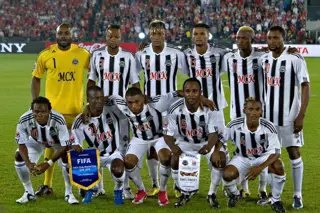
With the exception of TP Mazembe, our teams that qualify for continental competitions play all their matches away from home, since the facilities are not approved by CAF. Here again, we will have to find solutions.
Our football was among the best on the continent. The quality of our players is no longer in question. But given the conditions in which they practice their profession, given the lack of respect for contracts and the non-payment of salaries, and given the social crisis that affects them, can they believe in the future? Every day that passes, our football loses its attractiveness – and this is why, solemnly and in the name of all Congolese footballers, the UFC calls for concord to save our football and give it back its rightful place at international level. It is no longer time for discord, but for a sacred union.

